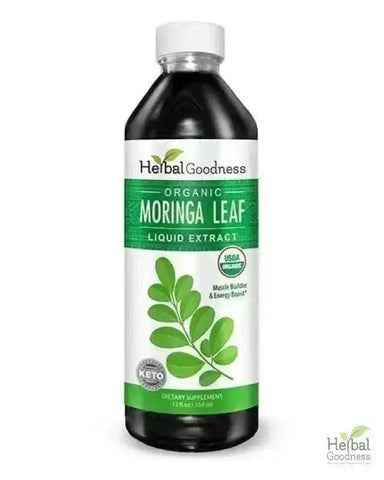A Quick Guide to Holistic Medicine | Herbal Goodness
An introduction to Acupuncture, Homeopathy, Ayurveda, and Osteopathy
Holistic medicine is defined as a type of medicine that attempts to treat a patient as a whole person, as opposed to treating their illness on its own. This means that a person’s overall physical, mental, spiritual, and emotional health are all looked at before being treated. Although there are a lot of great things that have come from modern medicine, there’s no doubt that holistic medicine has done wonders in the medical field for thousands of years.
There are a lot of different types of holistic medicine out there today, and it can get confusing understanding which ones are which. We put together this quick little guide to get you started on the most popular types of holistic medicine and what to expect from each one.
We would love to know - have you tried any of these before? Which ones would you want to try out the most?
Acupuncture
One of the more mainstream types of alternative medicine today, acupuncture started in China over 3,000 years ago. The practice is based on the belief that there’s a life force (qi or chi) that can be balanced through specific acupuncture points along energy channels in the body. The energy channels are said to be connected to bodily organs, and they’re often accessed by inserting sterile needles into the skin.
Acupuncture helps with encouraging the body’s natural healing response for a number of issues. Most specifically, there have been studies done on acupuncture and the nervous system, endocrine and immune systems, cardiovascular system, and the digestive system.
Homeopathy
Homeopathy is a practice that uses small doses of natural substances that in a person of normal health would produce negative side effects. Depending on the sickness, however, these small doses are said to actually help people who are struggling with specific health issues.
Particularly popular in India, South America, and Europe, and considered to be the second-largest therapeutic system in the world, the idea of homeopathy was discovered in 1790 by Samuel Hahnemann when he was testing how the bark of the cinchona tree could be used as a treatment for malaria. He made the mistake of testing it on himself, a person who didn’t actually have malaria, and he soon discovered that he had symptoms similar to malaria. He realized that it would need to be tested on a person with malaria to be effective, and thus the study of homeopathy was born.
Homeopathy, similar to acupuncture, tunes into your body’s own healing powers to bring about change and wellbeing.
Ayurveda
Ayurveda has especially become popular in western cultures in the past decade, but it is thought to be the oldest type of holistic medicine that is still being practiced today, having started over 5,000 years ago. The practice of Ayurveda started in India and is based on the balance of the 5 elements - ether, air, fire, water, and earth - and an individual person’s soul. This practice believes that the combination of the elements and the specific characteristics of the soul can have effects on the functions of the body.
The whole idea behind Ayurveda is that it’s a lifestyle, not a treatment. Its goal is to keep humans at their most optimal levels of health while realizing their full potential. Ayurveda brings together our environment, body, mind, and spirit, and reminds us that they’re all connected and important to our wellbeing. Ayurveda can be practiced a number of ways, but it's especially practiced through diet, behavior, and the correct use of our senses.
Osteopathy
Probably the least known type of holistic medicine on this list, Osteopathy, was created in 1874 by an American doctor who was disillusioned with modern medicine and how little it seemed to be helping his patients. The idea behind Osteopathy is that the body has its own system for healing, and this innate healing response has to be activated by a healer.
Particularly, Osteopathy focuses on the musculoskeletal, circulatory, and digestive systems, making sure that these systems are properly aligned in the body. An Osteopathy healer would focus on the manipulation and massage of the bones, joints, and muscles.
A Natural Way to Support Holistic Healing
Just like Acupuncture, Homeopathy, Ayurveda, and Osteopathy emphasize balance and whole-body wellness, incorporating herbs into your lifestyle can also help support your journey to better health.
One of the most respected herbs in Ayurveda is Moringa, often referred to as the “Miracle Tree.” Packed with antioxidants, vitamins, and essential nutrients, Moringa Leaf Extract Liquid from Herbal Goodness are a simple, natural way to support energy, vitality, and overall wellness, perfect for anyone embracing a holistic lifestyle.
Bring balance and nourishment to your daily routine with Moringa Leaf Extract Liquid – Organic 10X Strength
Whether you’re exploring Ayurveda, practicing yoga, or simply seeking natural ways to thrive, Moringa is a trusted companion in holistic living.
So, what are your thoughts? Would you try any of these healing modalities for yourself?
I Nutrition to Balance Hormones that Affect Your Mood
II Stress, anger, irritability and your health - how they connect













